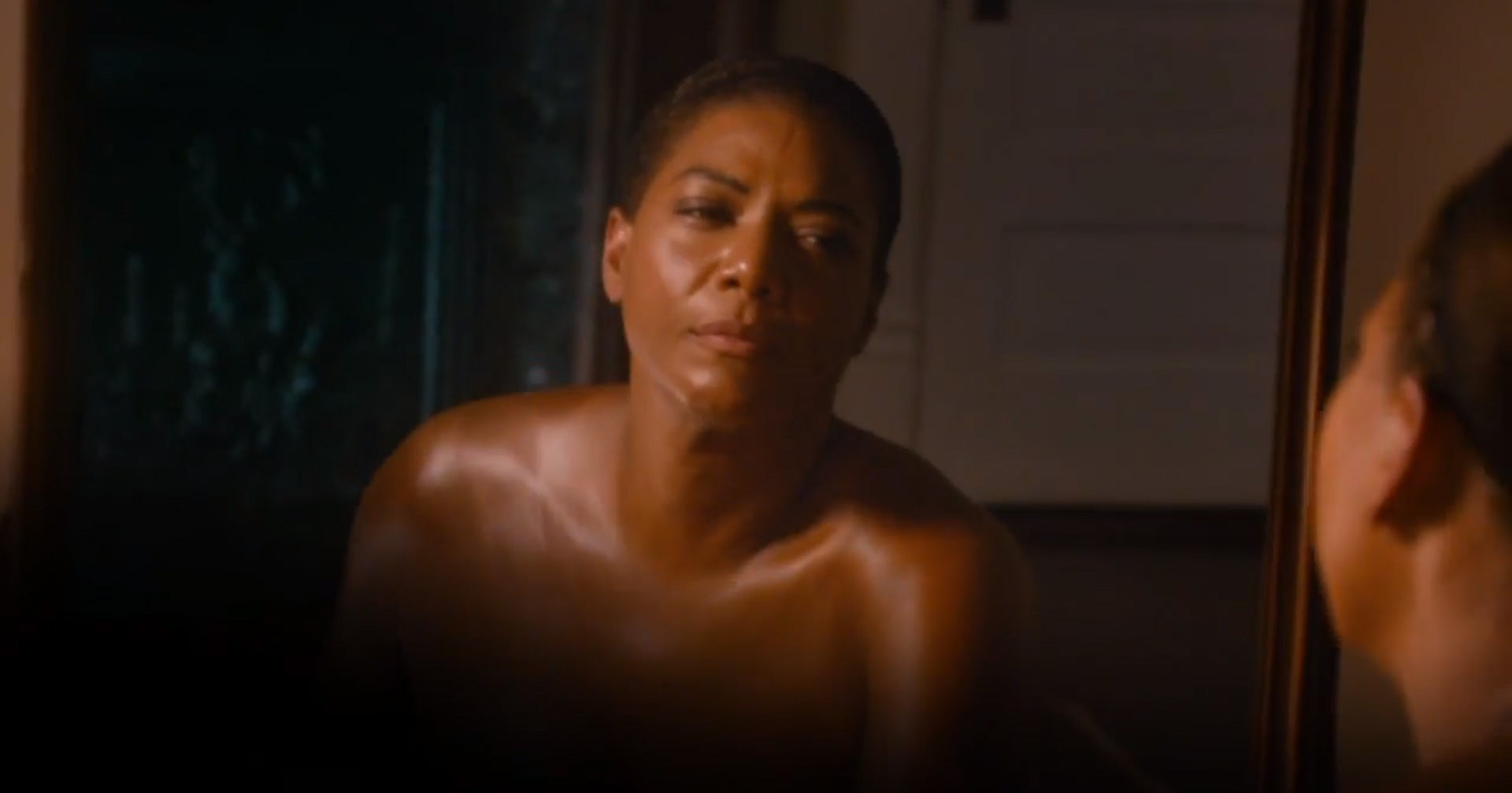
Queen Latifah is so convincing in the new HBO movie Bessie, that you will find yourself Googling the real Empress of Blues just to differentiate the two.
The rapper turned actress mesmerizes as Bessie Smith, in large part, because she completely loses herself in the role of her career. When the soulful biopic debuts this Saturday, May 16, viewers will quickly forget all the other parts Latifah has played in the past or that she is acting at all. With each song, strut and gesture she is Bessie, solidifying every ounce of vulnerability, pain, and loss the real woman did with her music.
But there is more to Bessie than the woman born Dana Owens’ spellbinding performance. The small-screen film also boasts stellar storytelling, a top-notch cast, breathtaking costumes and gut-wrenching music. Here are 7 reasons you have to watch:
Her Story: Bessie Smith’s story deserves to be told. The Chattanooga, Tennessee native was orphaned at 9, suffered and survived poverty and abuse, juggled a tumultuous marriage and open bisexuality and sang like nobody’s business. Smith’s guttural prowess inspired the likes of Billie Holiday and even Janis Joplin and at the peak of her career, Smith was the highest paid black performer in the world. Although a tragic car accident cut short her life at 43, Smith was ahead of her time and this movie – directed and co-written by Dee Rees (Pariah) – will give the trailblazing songstress the credit and kudos she earned.
Amazing Acting: There isn’t one weak performance in this film. Latifah bares her soul and her breasts and gives it her all. Producers approached Latifah to play the role 22 years ago but the timing wasn’t right. It was worth the wait. Meanwhile, her chemistry with her on-screen love interests is off the charts. Michael K. Williams, who plays Bessie’s dynamic but insecure husband and manager Jack Gee is phenomenal as is Tika Sumpter. She costars as Lucille, Bessie’s lover and dancer. Mike Epps is unnervingly compelling as Bessie’s lover and bootlegger Richard and Mo’Nique is dynamic and unexpectedly understated as Ma Rainey, Bessie’s professional mentor. Just hand this cast their Emmys now. Seriously.
Those Clothes: Try watching Bessie without hopping online to buy every flapper dress and glittery headpiece you can find. Emmy-winning costumer Michael T. Boyd wisely utilizes every opportunity to drape Latifah’s voluptuous frame in lush and flattering fabrics, cuts and styles true to that era. The clothes used to personify Bessie’s lower stations in life are equally authentic. Well done, sir.
The Music Behind The Story: Latifah concedes that she will never capture Bessie’s signature growl but she comes pretty close because, as we all know, she can sing. Thankfully, her voice is strong enough to keep audiences in that world. Mo’Nique also sounds great as Ma Rainey. If nothing else, the songs will inspire folks to go to iTunes and buy every hit from Smith and Ma Rainey they can find. Here are two of our favorites. Smith’s 1929 chart-topper “Nobody Knows You When You’re Down and Out” – which was released the same year she split from her husband – and Rainey’s song about her own bisexuality “Prove It On Me.”
Wonderful Lines: Smith endured a stunning amount of sexism and racism and her lines about these slights are priceless. One of the best comes when the singer meets Carl Van Vechten author of “Nigger Heaven” in New York. (If only we were making up this title.) When Van Vechten tells Smith about the book, she throws champagne in his pompous face and says, “White folks in the south don’t care how close you get as long as you don’t get too big. And white folks in the north don’t care how big you get as long as you don’t get too close.” Viewers can expect even more unforgettable one-liners from Williams, Mo’Nique and Epps. Get ready to tweet and tweet often.







Life Versus Fiction: Smith gets stabbed in the movie after she embarrasses an arrogant partygoer who seeks and gets revenge. This happened in real life but she was stabbed in the chest instead of the stomach and it was after a performance not a speakeasy. But, true to real life, Smith is shown performing the next night. In another scene, Smith runs off a group of Ku Klux Klan members who attempt to sabotage one of her tent performances. That too happened in real life.
Success Is More Not Less: If people tune in to Bessie and make it the ratings and social media success it should be, HBO and other networks will take notice and invest more money and air space in exceptional passion projects like this one. This is arguably the best and most honest depiction of African-American life on the network since 2005’s Lackawanna Blues. With a little luck and a lot of viewers, hopefully it won’t be another decade before we see something as inspiring as Bessie on our televisions again.
Bessie premieres Saturday, May 16 at 9pm ET on HBO.



